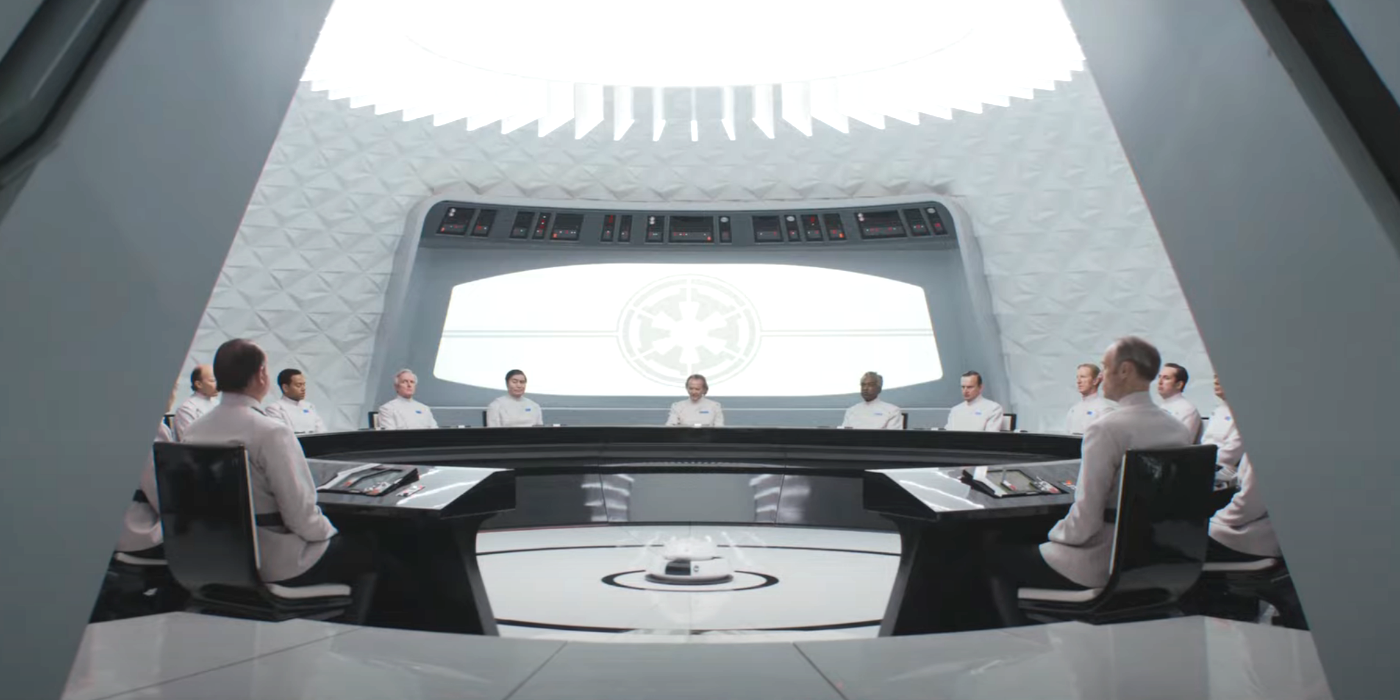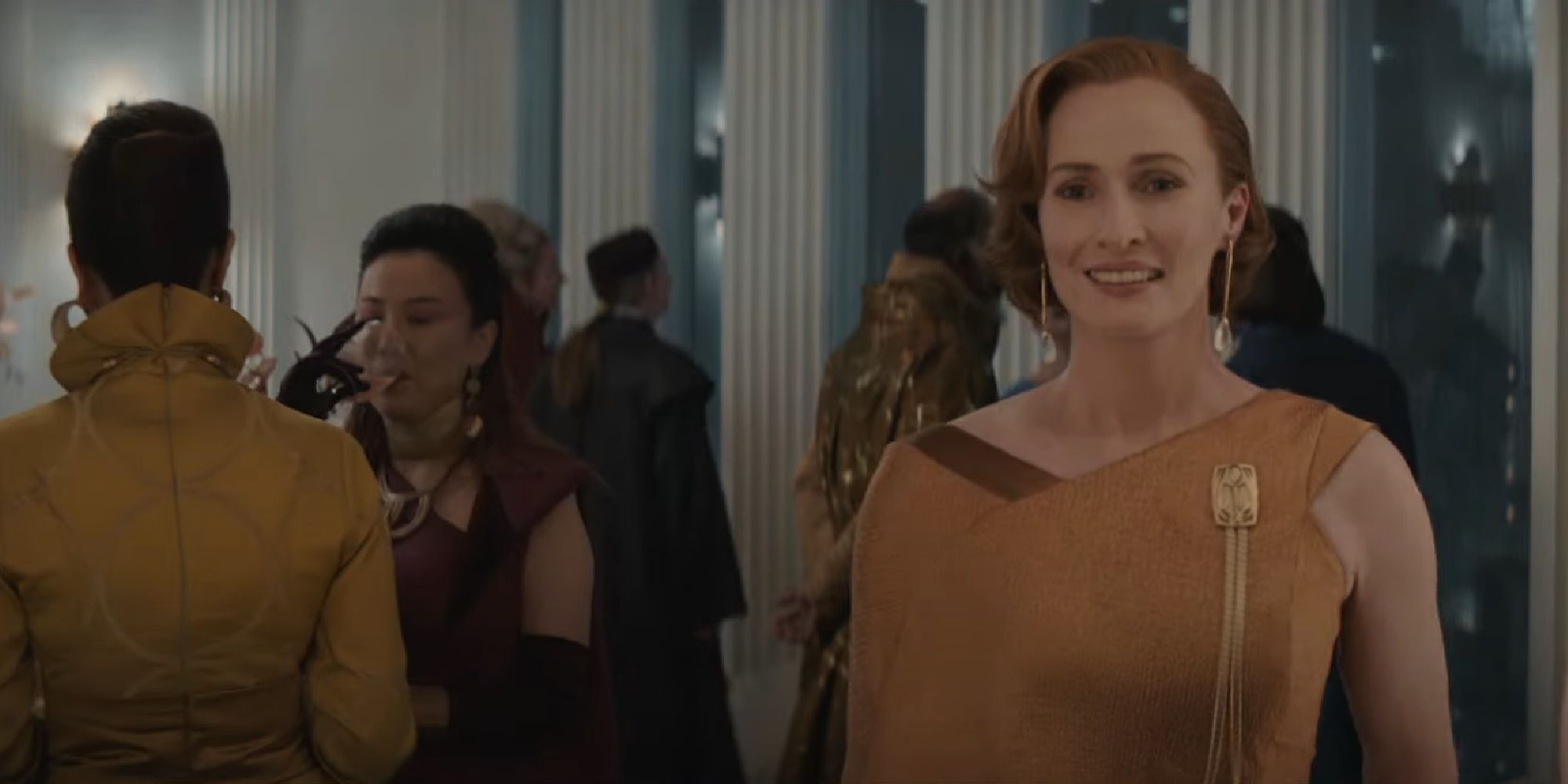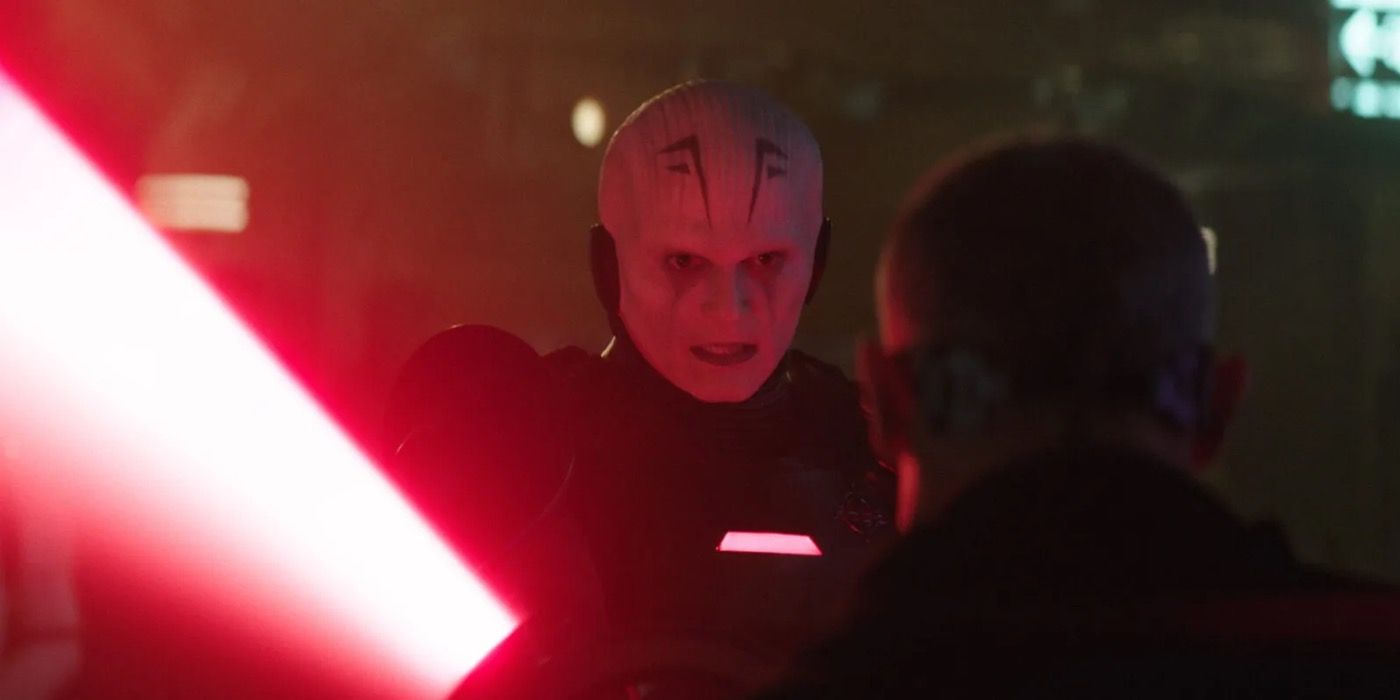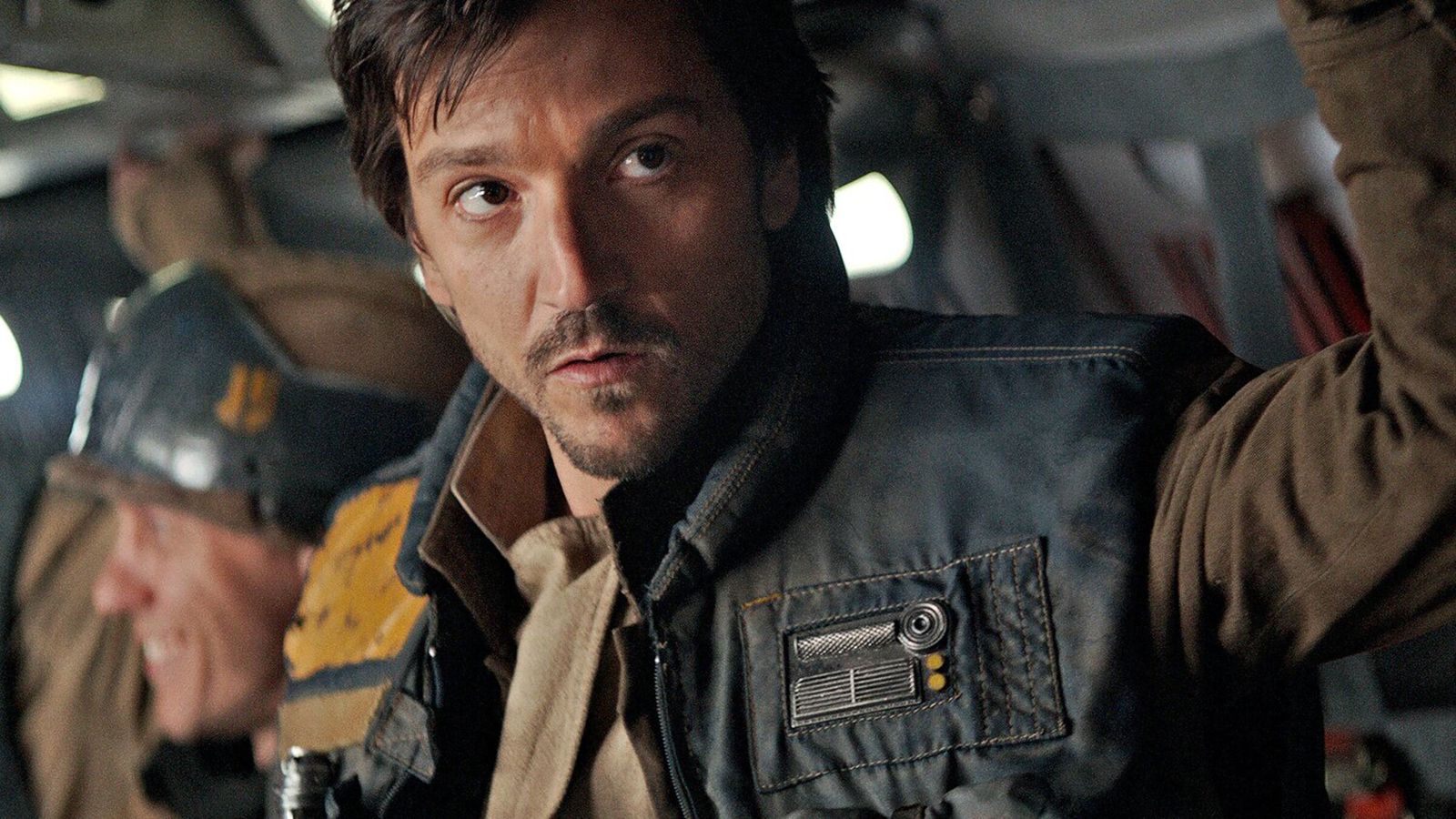One of the first complaints some fans had about The Phantom Menace was the vague and slightly convoluted political storyline. Since then, the politics of Star Wars have been left mostly vague with very clear moral and immoral characters. Yet, with Andor, the Rogue One spinoff coming to Disney+, the complicated politics of the galaxy far, far away might be making a comeback at just the right time.
No matter what one might think, Star Wars has always been political. Yes, George Lucas dreamed up a fantasy world of magic and adventure like the serials he used to watch in moviehouses as a child. Still, at the core of this story is a deeply political conflict. The Empire is a fascistic dictatorship subjugating the galaxy, while the Rebel Alliance is a well-armed band of freedom fighters trying to restore democracy. Yet, Lucas also put his commentary about the Vietnam War in Return of the Jedi. In the prequels, Lucas then wanted to tell the story of how the “good” Republic became the “evil” Empire. While the former is easy to latch on to, the other is much more complex than some folks expect for movies about space wizards.
The transcript of a story conference with George Lucas and writer Lawrence Kasdan appeared in a book about the making of Return of the Jedi. When discussing the new character of the Galactic Emperor, Kasdan asked if, like Vader, he used to be a Jedi. “No, he was a politician. Richard M. Nixon was his name. He subverted the senate and finally took over and became an imperial guy and he was really evil. But he pretended to be a really nice guy,” Lucas replied. The Watergate scandal was less than a decade before this, so it was all still fresh and raw in Lucas’ mind. In the intervening 15 years, he decided to use the prequel story to show how "his Nixon" came to power.
Now that Lucasfilm is in the Mouse’s hands, the politics in the Star Wars stories we’ve gotten has focused more on that clear moral delineation of “good” versus “evil.” Andor looks no different in that respect. The trailer released at Star Wars Celebration shows the Empire descending on what is presumably the village Diego Luna’s Cassian Andor grew up in. Yet, in Rogue One, when we meet Cassian, he kills a man who helped him rather than risk him exposing the Rebellion. The moral gray area returned in a big way. Since the show will have much more time than the movie, we’ll get to see how Cassian becomes that man.
Yet, it won’t be just Cassian who will find himself forced to make hard choices in order to survive. Genevieve O'Reilly reprises her role from Rogue One and Revenge of the Sith as Rebel leader Mon Mothma, who will “break the internet” when she debuts. In Andor, Mon Mothma is still a Senator, trying to use the political system to oppose the Emperor’s new dispensation of government. This means that the politics of the galaxy will not just be part of the story, but central to this character’s journey. There will be two seasons of Andor, and producers say Cassian won’t “meet” Mon Mothma until the second half. Yet, their stories will run parallel to each other in this first season. This means that both the plot and the emotional center of the series will be tied to galactic politics and policy.
Viewers will get to see, through Mon Mothma, the legislative process about how these supposed representatives are able to accomplish their goals. The effects of this policy they dream up on Coruscant will likely play out through Cassian’s story. This will be a chance for Star Wars to show how the Imperial propaganda sausage gets made. The Empire ransacks an innocent village for resources or just because they got in their way. In the Senate, the Emperor or his lackeys will boast about "bringing peace" by fighting "terrorists" or some other word the big army calls the little army.
When someone approaches this kind of political world with strict morality, any opponent willing to lie wins. Both Cassian and Mon Mothma are going to need to enter moral gray areas not just to advance their goals but simply to survive. These sorts of choices make for interesting drama, but also provide an opportunity to more closely examine exactly why the Empire is evil. It can also add some nuance to the Rebellion, showing that they didn’t always make the brave or morally right choice. And it’s not just Andor that will examine this time in Star Wars history, Obi-Wan Kenobi will as well.
Both of these new Disney+ Star Wars series are set between the prequel and original trilogies, what Alec Guinness’ Ben Kenobi called “the dark times.” They also both feature protagonists who, while capable heroes, choose not to fight the larger evil. Instead, they are sneaking around, hiding and trying to survive. Because we’ve all seen stories about how to take down the oppressive system, we could use a story about how to survive in one. Not only that, but a story that shows how people close to defeat by a seemingly invulnerable enemy can find the will to fight and a glimmer of hope.
These are trying times for the world. As wars wage online and in the physical world, democracy’s permanence feels less certain today than it did even when Revenge of the Sith brought the saga to a (very temporary) close. Lucas was warning his audience that the democratic institutions people take for granted can fail and be corrupted by those pretending to “love democracy.” Yet at the time, perhaps audiences missed that message because they were actively taking their real-world institutions for granted.
The idea that "art makes change" is nice but may not be precisely true. What good art can do is allow people to consider the question at the center of real-world issues without explicitly laying it out. Stories like Andor can be a gentle warning to audiences, while enjoying the escapist adventures of a galaxy far away, to keep an empathetic eye on the all-too-often tragic events that happen in the world.
George Lucas built Star Wars nearly half a century ago to give people a modern myth. Mythical storytelling has used fanciful metaphor to examine questions about our lives since people started telling stories. A story like Andor, about what happens when a democracy falls into ruin, is the kind of warning that could prove useful sooner rather than later.
You can dive into the political minutiae of Star Wars politics when Andor debuts August 31 on Disney+.




